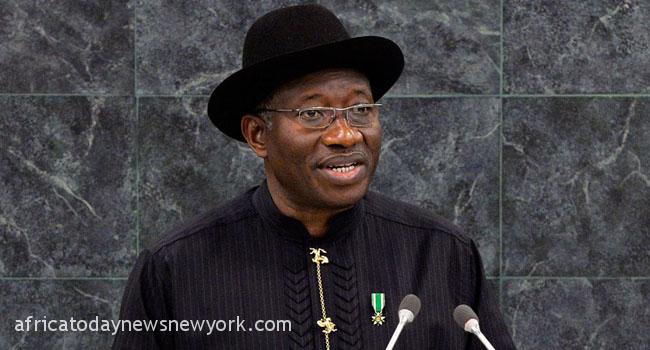Former president of Nigeria, Goodluck Jonathan, has provided insight into how he was able to resolve a four-month strike during his administration in one night.
Jonathan made this disclosure while speaking during the 70th birthday celebration of the Catholic Bishop of Sokoto Diocese, Most Revd (Dr) Matthew Hassan Kukah in Abuja, yesterday.
‘Now we are talking about ASUU strike. Even my time too, ASUU had four months strike. Different committees were meeting and meeting and nothing was working. I said, how can our students stay out of school for four good months?
‘I had to call a meeting of all the leadership of ASUU. I presided over the meeting with my vice president. The Attorney-General was there. I said that night, we must solve that problem.
Read Also: 2023: Why Tinubu Visited Jonathan
He further narrated; ‘Attorney-General was there, the Secretary to the Government was there, the ministers of Education were there, the labour ministers were there, the finance ministers were there. Everybody that it had to do with were there. And I thought that my being there will help ASUU to do things quickly. But we spent the whole night. Before we finished, it was like 5:30am and the strike was called off.” He said the country may not be where Nigerians want it to and should be, but Nigerians should not give up or lose hope by focusing on only the negatives. He added that judging from where Nigerians were coming from since independence in 1960, the country may have been moving slowly in the journey of nationhood, but it is a journey of progress, all the same.
‘Our greatness is still work in progress because we have not been able to adequately deploy the enviable human and natural resources that God gave us, to full advantage. It is a task we will continue to work on and improve. A nation is an organic being that sometimes suffers setbacks. Along the line, from 1960, the nation, no doubt, has had its own doses of setbacks. These cut across civil and military rule. The worst was the three-year civil war. In every setback, there are always lessons to be learnt and positive take aways from such painful experiences that should guide us to a more productive future.
‘Obviously, many people, especially our youth are becoming increasingly disillusioned about our politics and our democracy. However, we must remain on the democratic path because it is the only practical way of effectively managing our diversity, developing sustainably and recording progress as a nation.
‘The task before all of us is not to lower our guard, lest the democracy we cherish today succumbs to threats and recedes into fascism tomorrow. Towards this goal, we are again faced with a good opportunity of choosing our leaders as the nation prepares to go to the polls next year. Let us choose those that will take us to the desired destination and the promised land. I am particularly thrilled that Nigerian youths are participating actively in the politics of 2023.’
He also bemoaned the level of religious crisis in the country, submitting that Nigeria has the worst religious crisis in Africa.

